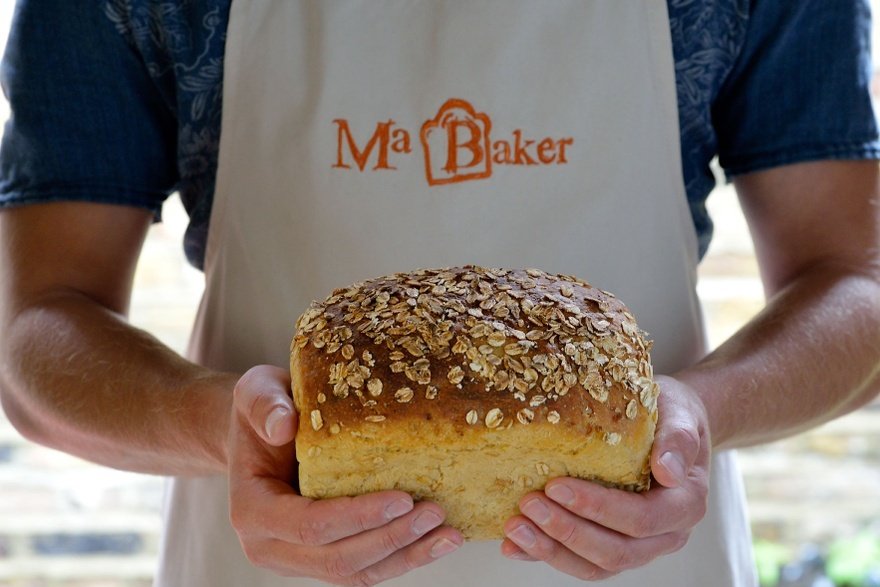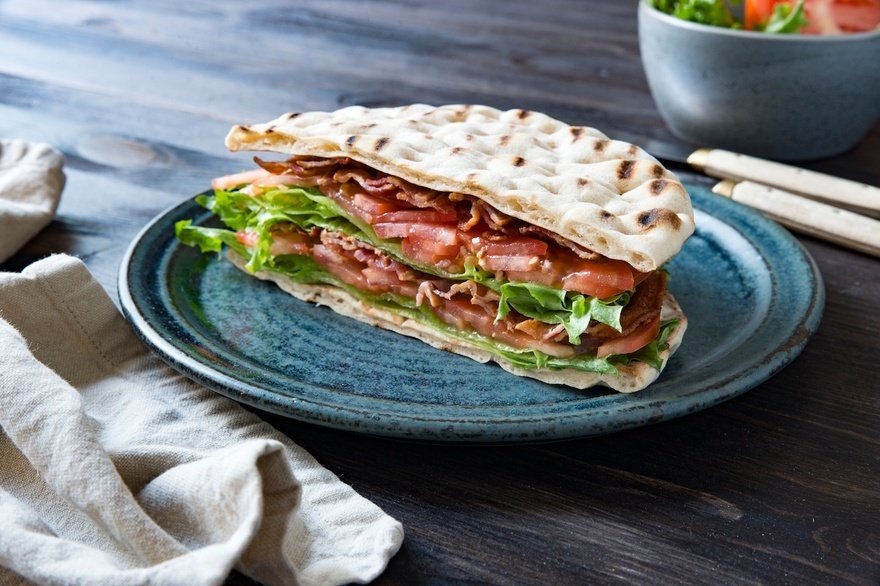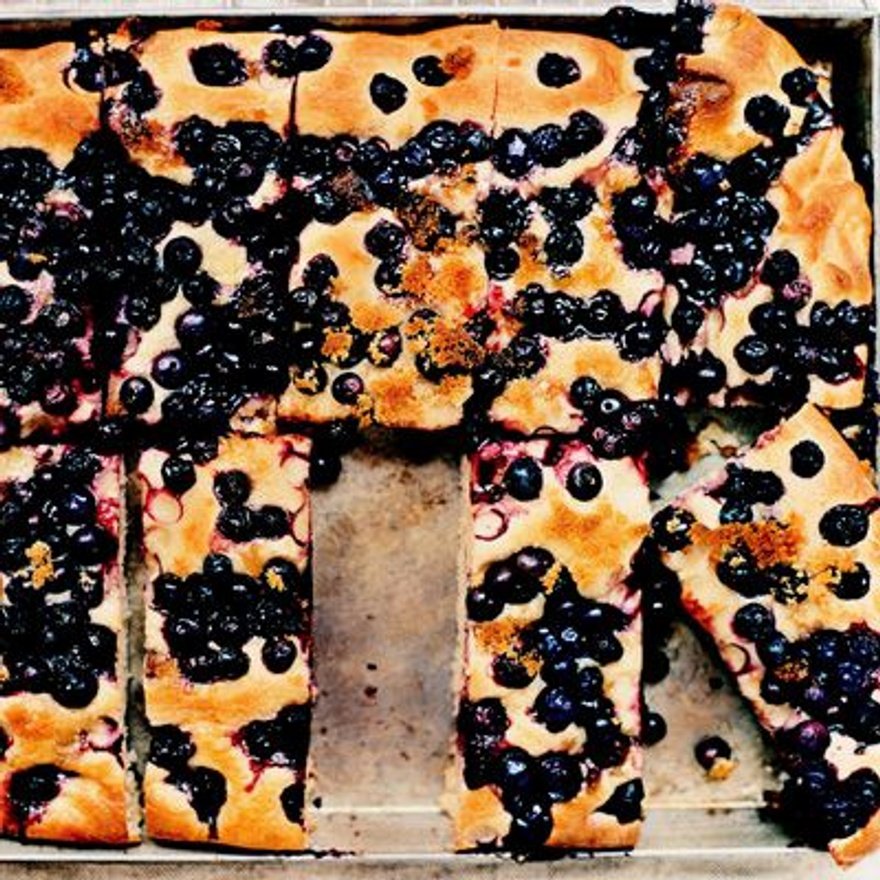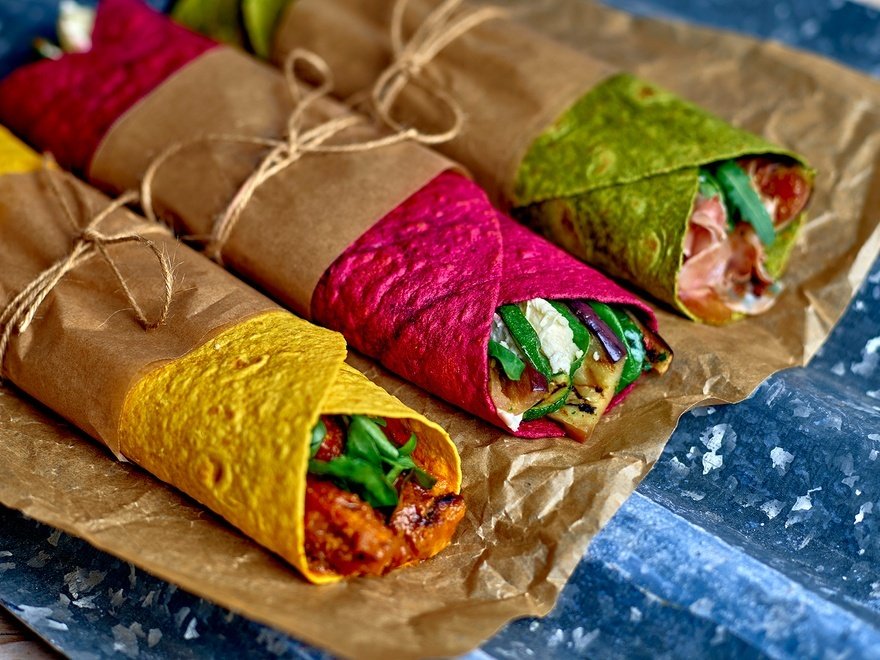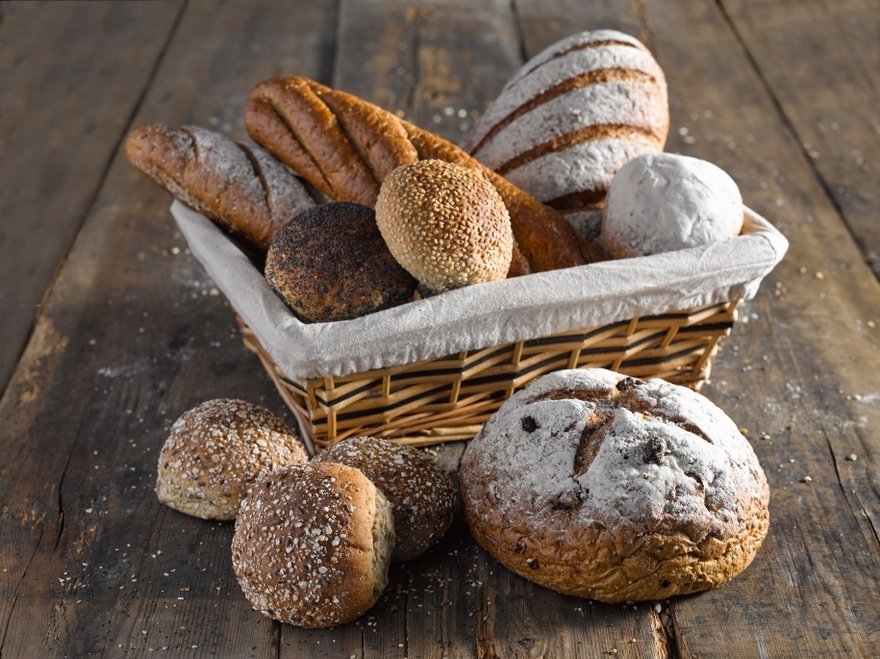On the rise Bread is a staple with a lot to offer and varieties are growing ever-more sophisticated, from Scandinavian rye to Italian pandoro. Will Hawkes reports on the latest offerings
Liz Wilson's bakery is pretty unusual – it's her dining room. Around the table you'll find a three-floor Rofco Oven sitting next to a beautiful 70-year-old Hobart dough mixer, and shelves heaving with diverse and intriguing baking ingredients.
This terraced home has been invaded by Wilson's passion for baking, but her family don't appear to mind. "They're pretty forgiving, as long as there's a decent amount of bread for them to eat!" she says in her soft Australian accent. "I'd like a proving fridge as well, but I think that might be pushing my luck."
Wilson set up her business, Ma Baker, from her house in Fulham five years ago. She offers baking classes three or four times a week and delivers bread every Thursday to around 100 homes in SW6. It's a combination that has given her a unique insight into what customers are looking for in this well-heeled corner of West London and beyond.
"When people come in for the lessons, we have lots of chances to chat and find out why they are here," she says. "I think people are turning away from the highly processed supermarket bread because it's not making them feel great or because it doesn't have enough flavour."
That's borne out by the way the market is evolving. Sourdough – or bread which is sold under that name – continues to plough relentlessly on, with global sales expected to rise by 6.9% by 2023, according to figures provided by Pan'Artisan. Ciabatta and panini (3% and 8% year-on-year growth, according to figures from Lantmännen) are still on the rise, too.
Elsewhere, there's less good news: sweet bakery is declining, according to figures provided by Macphie, with out-of-home bakery occasions also falling. Beyond this, though, there's a blossoming world of diversity, a world that Wilson knows well.
Northern lights
Ma Baker offers an impressive variety of bread to the people of Fulham. There's white and wholegrain, of course, plus special flavoured breads – such as hazelnut and fig, or walnut and blue cheese – and rye bread.
"I think rye is going to have its day," she says. "It's so nutrient-dense, it's got a long shelf-life, it freezes well and it tastes good. There are lots of really winning qualities about it and it's lower in gluten. People are buying into rye's healthy reputation, and you can get British rye flour from Gilchesters Organics in Northumberland."
Then there's the associated rising interest in Scandinavian bread. "There's a lot of interest in Nordic stuff," she says. "Danish chain Ole & Steen does lots of cardamom buns and lots of seeded crackers as well, which are hugely popular –they're like a knekkebrød, a Scandinavian kind of cracker-style bread, with seeds and buckwheat.
"I think it's going to get even bigger: I'm just starting to see more of those sorts of breads in shops everywhere."
Jenny Jeppsson, concept manager at Swedish flatbread company Polarbröd, says versatility is the great strength of Scandinavian bread. Polarbröd currently offers five different flatbread and thinbread products in the UK.
"Traditional Swedish flatbreads and thinbreads really lend themselves to many of the current food trends in the UK, like street food-style dining and allday breakfasts, for example," says Jeppsson.
"Swedish flatbreads are ideal for breakfasts, lunch, snacks, dinner and anything in between. They be used as a carrier or as an accompaniment, as a base for canapés or pizzas, as well as the more traditional uses, such as open sandwiches or wraps, which are currently very popular."
A world of flavour
French producer Bridor is also investing in the growing demand for Scandinavian bread, with its dark and dense Nordic loaf made with buckwheat, rye, malted wheat and malted barley flour, with a blend of six seeds (sunflower, poppy, millet, white sesame, and yellow and brown flax).
"There's increasing demand for Eastern European and Scandinavian flavours," says Bridor baker Jon Warwick. "It might seem exotic – but there was once a time when the traditional French croissant was considered exotic and that's become an integral breakfast offering in hospitality."
Polish-style rye is also increasingly popular, according to Tasneem Alonzo, joint managing director for Lähde foodservice range at EHL Ingredients. "Polish rye breads have always been available on menus in continental shops and delicatessens, but now they can often be found more widely," she says.
"Polish loaves and rolls often contain rye flour, caraway, sunflower, poppy or pumpkin seeds, and are often sourdough-style. Rye bread is typically denser than bread made from wheat flour, is higher in fibre than white bread, darker in colour, and has a stronger flavour."
Beyond the current demand for Scandinavian flavours there's huge variety from which to choose. One of the more interesting new concepts is the use of miso and other umami-rich fermented products, as championed by Brett St Clair, head baker at Bristol bakery Bakers & Co.
"We've already seen Richard Hart from Hart Bakery in Copenhagen using the Noma fermentation lab's rye bread miso to incorporate back into rye loaves," he says. "I'm thinking a lot of bakers will start playing with interesting fermentations outside of the traditional bread sphere, to add new dimensions to their loaves."
In terms of sweet breads, he expects panettone to plow on. "Panettone will continue to be massive over here, thanks to bakers like Roy Shvartzapel in the US," he says. "And enriched celebration breads on the whole are on the rise– like colomba di pasqua [a sweet bread eaten at Easter in Italy], pandoro [a golden yeasted sweet bread], and la rosca de reyes [a an oval-shaped sweet Spanish pastry]."
Mediterranean flavours, of course, have long been popular in the UK. According to a report commissioned by Nottingham bakery Butt Foods, they're the most popular flavouring to go on top of a flatbread like their Baked Earth ready-baked oval sourdough option "Being generally neutral in flavour, flatbreads can be paired with a wide variety of ingredients," says managing director Dan Butt, "but Mediterranean flavours such as peppers, halloumi, chorizo, mozzarella and peri-peri tend to be the most popular combinations."
French options are still hugely popular, and Pasquier has just released its Biscotte: a type of toasted bread made from fresh French bread or brioche that is baked twice to give it a golden appearance and a crunchy texture. It is like the Italian sweet biscotti, but with a plain, natural flavour designed to work with both savoury and sweet dishes.
More and more bakers, though, are looking beyond such well-established options. One interesting idea is to use teff, an Ethiopian grain that is gluten-free and high in fibre, iron, magnesium and is the only grain known to contain significant amounts of vitamin C.
"The prebiotic fibre is an especially key benefit for IBS sufferers," says Lovegrass Ethiopia's Yonas Alemu.
"The teff grain is ground into flour and can be used in place of conventional plain or self-raising flours. Using teff flour in your baking to replace your usual flour can naturally enhance the nutritional value of the foods people already enjoy, while also providing an easier solution when catering for large numbers."
Another option is to use vegetables, according to Gordon Lauder, managing director of frozen food distributor Central Foods. "Colour is king when it comes to offering breads that stand out from the crowd," he says. "Our Kater-Bake range of wraps, for example, features beetroot, spinach and pumpkin. The advantage of adding ingredients like this is that the wraps not only look colourful, appealing and eye-catching, but they also each contain part of one of your five a day."
Get equipped
For those working under intense time pressures, CSM Bakery Solutions' grain mixes – Arkady Multiseed Gold or Pantique Ancient Grains – are a useful option. "Pantique Ancient Grains bread mix is unique in the market, as no other bread mix contains the ancient grains emmer and einkorn, which will enhance any caterer's bread offering," says Miriam Bernhart, product marketing director for bread ingredients, Europe, at CSM Bakery Solutions. "It produces beautifully flavoured, high-quality bread and rolls.
"Arkady Multiseed Gold is a delicious combination of oats, linseed, sunflower seeds and pumpkin seeds that produces tasty bread and rolls with a malty flavour, a sweet taste, rich golden colour and plenty of visible seeds."
There's plenty of interesting equipment, too. Jestic offers bakery equipment from Sveba Dahlen, a Scandinavian manufacturer which has recently launched its patented Increased Baking Surface system, which promises a quicker, more even and energy-efficient bake.
Wellbilt, meanwhile, offers the Convotherm 4 Bake, which, they say, "is perfect for caterers looking to wow with a wide selection of on-trend, perfectly baked breads."
It's all a bit different from Wilson's trusty Rofco, but she might have the most interesting development to offer. Her most popular delivery option, she says, is porridge bread, made using leftover cooked porridge.
"It's thrown into a tin, but it's really bubbly like a crumpet," she says. "When you toast it, you get a crispy outer, but then a squidgy centre that soaks up butter and honey – it just makes really good toast." An innovation that complements British tradition? That might be the most interesting development of all.
Suppliers
Bakers & Co www.bakersbristol.co.uk
Bridor www.bridor.co.uk
Butt Foods www.buttfoods.co.uk
Central Foods www.centralfoods.co.uk
CSM Bakery Solutions www.csmbakerysolutions.com
EHL Ingredients www.ehl-ingredients.co.uk
Jestic www.jestic.co.uk
Lantmännen www.lantmannen.se/en
Lovegrass Ethiopia www.thelovegrass.com
Ma Baker www.mabaker.london
Macphie www.macphie.com
Pan'Artisan www.panartisan.com
Pasquier www.pasquier.fr/en_uk
Polarbröd www.polarbrod.se/en
Wellbilt www.welbilt.com
Continue reading
You need to create an account to read this article. It's free and only requires a few basic details.
Already subscribed? Log In

